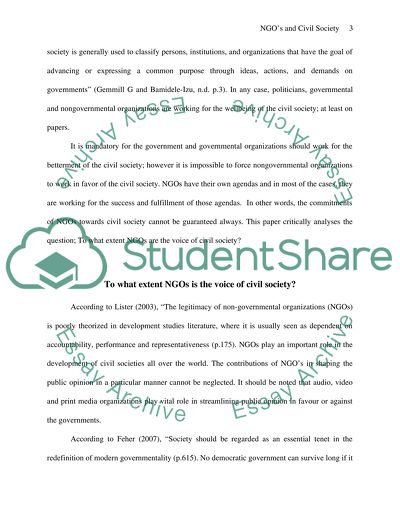Cite this document
(“To What Extent NGOs is the Voice of Civil Society Essay”, n.d.)
Retrieved from https://studentshare.org/politics/1619885-to-what-extent-ngos-is-the-voice-of-civil-society
Retrieved from https://studentshare.org/politics/1619885-to-what-extent-ngos-is-the-voice-of-civil-society
(To What Extent NGOs Is the Voice of Civil Society Essay)
https://studentshare.org/politics/1619885-to-what-extent-ngos-is-the-voice-of-civil-society.
https://studentshare.org/politics/1619885-to-what-extent-ngos-is-the-voice-of-civil-society.
“To What Extent NGOs Is the Voice of Civil Society Essay”, n.d. https://studentshare.org/politics/1619885-to-what-extent-ngos-is-the-voice-of-civil-society.


